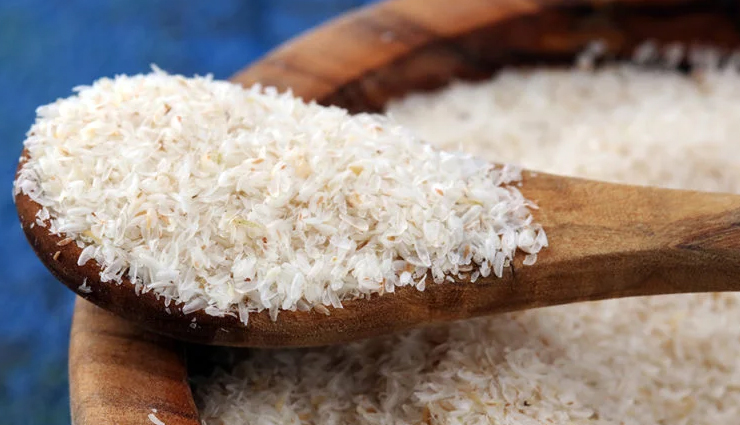- Home›
- Healthy Living›
- 5 Least Known Health Benefits Of Psyllium Husk
5 Least Known Health Benefits Of Psyllium Husk
By: Priyanka Maheshwari Tue, 16 May 2023 9:25:57

Psyllium husk is a type of soluble fiber derived from the seeds of the Plantago ovata plant. It is commonly used as a dietary supplement to improve digestive health, manage blood sugar levels, and promote weight loss.
When psyllium husk is mixed with water, it forms a gel-like substance that can help soften stools and promote regular bowel movements, making it a popular natural remedy for constipation. It can also help reduce the risk of developing certain digestive disorders, such as hemorrhoids, diverticular disease, and inflammatory bowel disease.
Psyllium husk has also been shown to have potential benefits for heart health by helping to lower cholesterol levels and improve blood pressure. Additionally, it may help regulate blood sugar levels by slowing down the absorption of glucose in the bloodstream.
Overall, psyllium husk is a versatile and natural supplement that can offer a range of health benefits when taken as part of a healthy diet and lifestyle. However, it is important to consult with a healthcare professional before starting any new supplement regimen.

# Helps To Relieve Constipation
Psyllium husk is a natural dietary supplement that can help regulate bowel movements and alleviate constipation. Its soluble fiber has the ability to absorb water in the gastrointestinal tract, resulting in the formation of a gel-like substance that can soften stool and ease its passage. Furthermore, it can enhance the health of the gut microbiome, thus promoting a healthy gut and preventing constipation in the long term.

# Aids in Reducing LDL Cholesterol
Incorporating psyllium husk into your diet can be a beneficial approach for managing cholesterol levels, particularly LDL cholesterol. This natural supplement shows promise in reducing cholesterol, making it an attractive option for those seeking to improve their cholesterol profiles. The soluble fiber present in psyllium husk has the ability to bind with cholesterol in the digestive system, preventing its absorption into the bloodstream. Consequently, this can contribute to a decrease in overall cholesterol levels and a reduced risk of heart disease. By regularly including psyllium husk as part of a healthy lifestyle and diet, you may also lower the likelihood of experiencing cardiovascular issues such as stroke.

# Lowers Blood Sugar Levels
The relationship between psyllium husk and diabetes may be attributed to the soluble fiber content found in psyllium husk. This particular fiber has the ability to delay glucose absorption, potentially leading to better blood sugar management in individuals with diabetes. This mechanism can help prevent blood sugar spikes and enhance insulin sensitivity. In individuals diagnosed with type 2 diabetes, psyllium husk has been reported to reduce fasting blood sugar levels, hemoglobin A1c levels, and insulin resistance.

# Satiety and Weight Loss
Psyllium husk serves as a valuable supplement for weight loss due to its ability to enhance satiety and reduce appetite. The soluble fiber in psyllium husk absorbs water in the gastrointestinal tract, expanding in size and creating a sense of fullness. Consequently, this can aid in consuming fewer calories and controlling overall food intake. Consuming psyllium husk before meals can also contribute to the reduction of post-meal blood sugar spikes and insulin levels. Research has indicated that integrating psyllium husk into weight-loss strategies can yield positive outcomes, as its soluble fiber content helps decrease appetite and promote a feeling of fullness.

# Reducing Inflammation
Psyllium husk contains soluble fiber that possesses anti-inflammatory properties, leading to potential improvements in overall health. Chronic inflammation has been associated with various health conditions, including heart disease, diabetes, and cancer. By mitigating inflammation, psyllium husk may aid in reducing the risk of developing these conditions. Furthermore, individuals with inflammatory bowel disease (IBD) such as Crohn's disease and ulcerative colitis can potentially find relief from symptoms through the consumption of psyllium husk. Its beneficial effects on IBD have been demonstrated in research studies.





